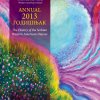Bill Clinton’s Kosovo ‘freedom fighters’ trafficked in body parts
Former President Bill Clinton continues to be feted around the world as a progressive champion of human rights. However, a European Union task force last week confirmed that the ruthless cabal he empowered by bombing Serbia in 1999 has committed atrocities that include murdering individuals to extract and sell their kidneys, livers and other body parts.
.Read more: The Washington Times





